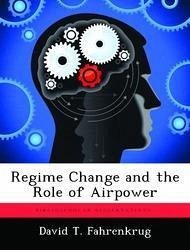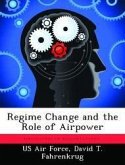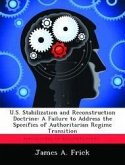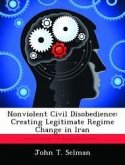Drawing from the vision of airpower theorists, and building on insights gained from studies on various regime changes, this thesis advances a theory of regime change and outlines a strategy for the use of airpower. In order to remain in power, regimes must continue to provide goods to the group of people responsible for its rise to power - the winning coalition. Different types of regimes rely on different types of goods to satisfy their winning coalition. This thesis advances the hypothesis that adversely affecting these goods will create policy failure, increase dissatisfaction among the winning coalition, and cause members to seek out a new coalition and regime to provide the lost goods. Additionally, since many regimes supply goods to third parties in order to retain their support, a third hypothesis was introduced to account for the influence of international support. Analysis of an American and South Vietnamese regime change demonstrated that overthrowing a particular type of regime is directly related to attacks on certain types of goods, thus providing a better model for airpower strategists planning a regime change. The theory outlined in this thesis is founded on theoretical limits for regime types and few regimes actually exist at these extremes still, the more democratic a regime, the more airpower should focus on public goods. Conversely, the more autocratic a regime, the airpower should attack private goods.
Hinweis: Dieser Artikel kann nur an eine deutsche Lieferadresse ausgeliefert werden.
Hinweis: Dieser Artikel kann nur an eine deutsche Lieferadresse ausgeliefert werden.








